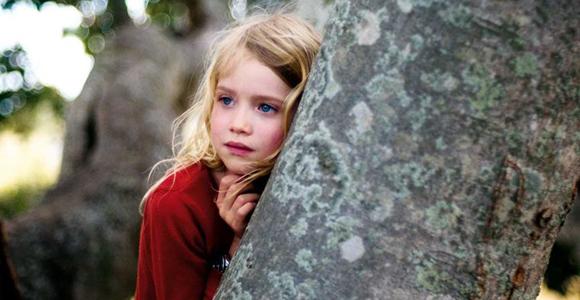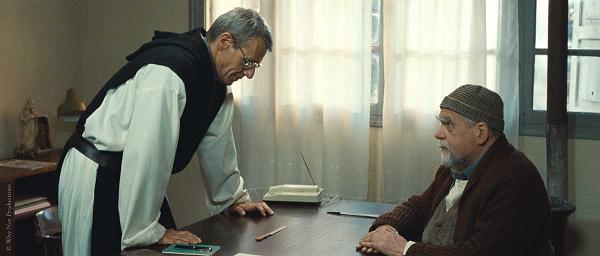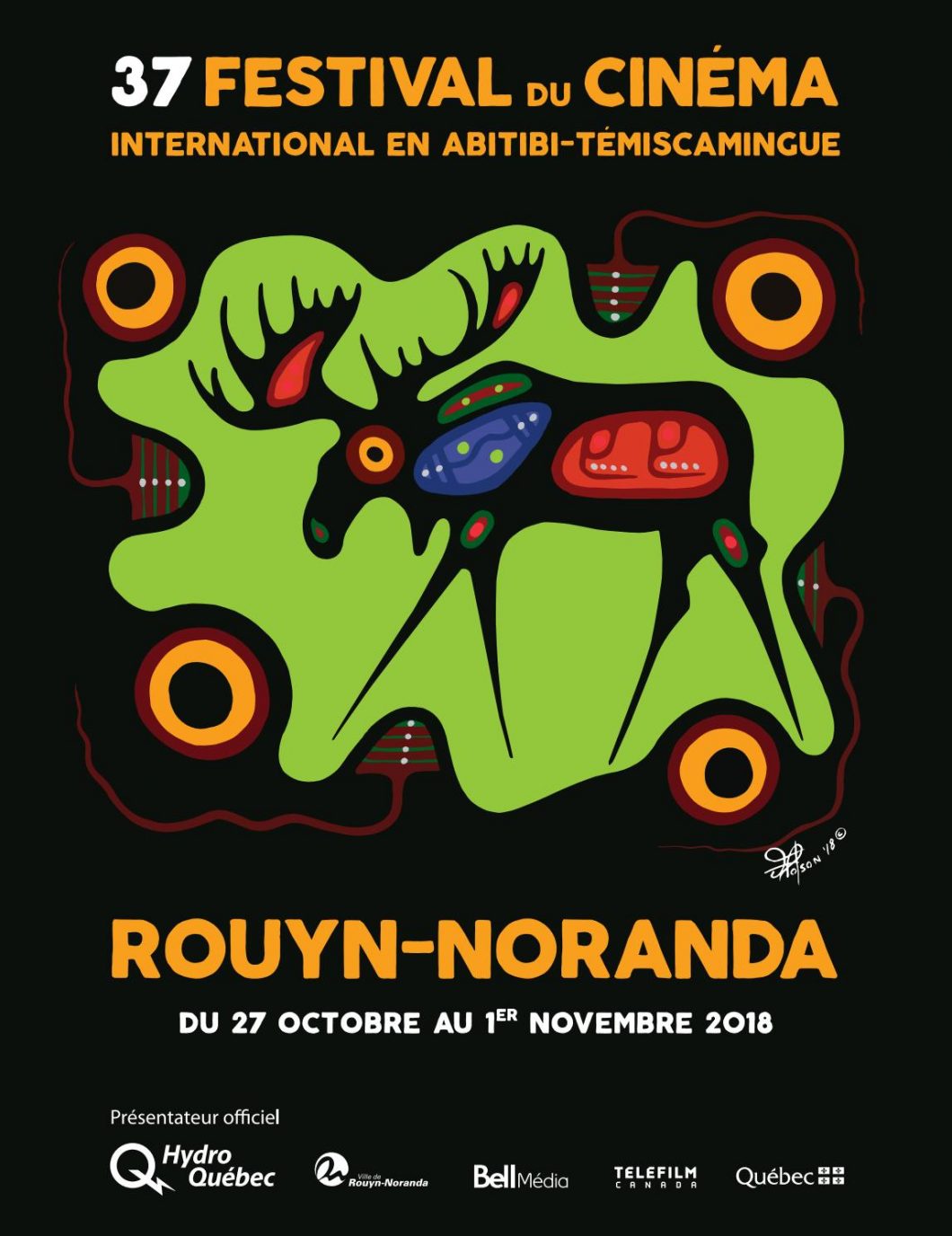OPENING FILM: Reste avec moi (Robert Ménard)17
[ More likely to win him yet another Aurore than a Jutra, Robert Ménard’s latest is a shamelessly, nah, obscenely melodramatic, manipulative, hammy, preachy, unsubtle, cloying and contrived ensemble film that’s badly directed alright, but suffers from even worse writing. The cast features some good actors (Gérard Poirier, Danielle Proulx, Vincent Bilodeau, Louis Morissette, Maxim Roy, Julie Perreault, etc.), but they couldn’t hope to salvage this crap. Screenwriter Claire Wojas apparently figured she oughta cram every issue imaginable in one picture: alcoholism, Alzheimer’s disease, allergies to cats, divorce, Down syndrome, abortion, a child running away, pedophilia, poor and abused immigrants, street gangs, asshole landlords, road rage… All of which are touched upon in an utterly shallow and ridiculous way. ]
Voir Ali (Martin Guérin)
[ In 1983, a bunch of beautiful dreamers in the far away, financialy fragile land of Abitibi managed to bring legendary heavyweight champion Muhammad Ali to Rouyn-Noranda to give a conference. This incredible story has been well researched, well documented and well told in this very entertaining documentary, which comes off like a cross between “La Grande séduction” and “When We Were Kings”. ]
Les invités de mon père (Anne Le Ny)62
[ Despite a somewhat schematic screenplay and point-and-shoot direction, this film about how an 80-year-old man makes his petit bourgeois family unravel by welcoming illegal immigrants into his home works anyway thanks to some hilarious one-liners, a few thought-provoking ideas and enjoyable performances by Fabrice Luchini and Karine Viard as the old man’s children. Oh, and did I mention that the illegal immigrants happen to be a young sexy vulgar brash blonde and her daughter? Good times! ]
Octubre (Daniel & Diego Vega)54
[ Every October in Lima, thousands of people participate in the Lord of Miracles procession. You wouldn’t expect a lonely cynical loan shark whose favorite hobby is to have sex with putas to show up in such an event, but he ends up doing just that in this award-winning film from the Un Certain Regard section of the latest Cannes festival. That’s because throughout the story, which unfolds slowly and quietly but not uninterestingly, our shylock hero will gradually allow other people in his intimacy, starting with a baby, who’s then followed by a lady friend, an old guy and a comatose woman… “Octubre” is most notable for its muted performances and for the series of well-composed morose, grey and brown, worn down tableaux it offers. ]
Les Fros (Stéphanie Lanthier)
[ This documentary about “débrousailleurs”, some Québécois but most of them foreigners (“fros”), takes place entirely in the depths of the Abitibi forests, which makes for a rather striking setting. As such, we can forgive how uneventful and repetitive it is… Especially since we also get so spend time with some wonderful characters, including the gloriously charismatic and cocky Mamadou, who could give Ali a run for his money! ]
Sound of Noise (2010, Ola Simonsson & Johannes Stjärne Nilsson)90
[ Right from the pre-credits sequence, in which a speeding van is used as a musical instrument by the woman driving it, who’s accompanied by a man playing drums in the back of the vehicle, I knew I was in good hands. A clever and fun idea, dynamically shot and cut, with absolutely brilliant sound design, this sequence is only the first of half a dozen equally awesome set pieces that are part action scenes, part musical numbers. “Sound of Noise” is also sort of a heist flick, with the man and woman we initally met in that van putting together a crack team of percussionists, then planning and executing Music for one city and six drummers, an anarchic symphony in four amusingly named movements, each of which involves performing in various locations and using whatever’s around them to rock out: Doctor, Doctor, Give Me Gas (In My Ass) in a hospital operating room, Money 4U Honey in a bank, Fuck the Music Kill! Kill outside a concert hall with heavy machinery, and Electric Love on… well, you’ll see! Meanwhile, we also follow a police detective who hates music and is determined to stop these terrorists and their weapons of mass noise pollution. Inventive and thrilling from start to finish, full of offbeat humor, colorful characters, and memorable sights and sounds, this debut feature from Swedish filmmaking duo Ola Simonsson and Johannes Stjärne Nilsson has got to be seen (and heard!) to be believed. ]
Fous de leur village (Vincent Audet-Nadeau)
[ This made-for-TV documentary about the problems facing small towns in rural regions of Quebec uses a Michael Moore-style approach, putting Huntingdon mayor/media personality Stéphane Gendron on the road in his black Mustang convertible and following him as he goes around meeting people who struggle yet, in most cases, keep on keeping on. Demagogic but effective enough, “Fous de leur village” will work or not for you to a large extent depending on whether you love or hate Gendron. I like him, mostly, so I enjoyed the film. Mostly. ]
Adem (2010, Hans van Nuffel)63
[ Winner of the Grand Prix des Amériques at the Festival des films du monde de Montréal, this Flemish dramedy takes place almost entirely in a hospital, where various characters suffering from mucoviscidosis experience friendship, love and misdemeanors while they can. A life-affirming film about impending death, “Adem” indulges in some clichés and narrative shortcuts, features a couple of caricatural supporting characters and oddly lacks urgency, but winning performances from the lead actors and the cold, sterile, bright, slightly heightened visual look manage to keep us moderately involved. Now, in comparison to the somewhat similarly themed “Never Let Me Go”, it ain’t all that. Still, it’s got its moments, including the note-perfect ending set to Radiohead’s Videotape. ]
Le nom des gens (Michel Leclerc)68
[ Jacques Gamblin stars as Arthur Martin, an utterly ordinary French man whose boring life is all shook up when he meets Bahia Benmahmoud, a spunky, impulsive, no-nonsense firecracker played by Sara Forestier. Oh, Sara Forestier… Not since Ludivine Sagnier in Ozon’s “Swimming Pool” have I seen an actress burn up the screen so much in a movie as a shamelessly promiscuous, purely sexual girl who keeps getting all kinds of naked. Of course, the fact that Forestier’s smoking hot nude body is a masterpiece doesn’t make this a great film, and neither do her beautiful blue eyes, cascading brown hair, infectious smile… Where was I? Oh yeah, so a sexy actress gorgeously shot by a filmmaker is not necessarily great cinema. But I gotta say, it’s not just the looks, Forestier is also a gifted little actress and the character she plays here, a self-rigthteous militant leftist Algerian young woman who uses her sexuality to convert her political enemies (“Moi je peux faire de grandes choses avec mon cul!“), is rather fascinating. I also liked the “Amélie Poulain”-like whimsical flourishes, the warm and colorful cinematography, the witty one-liners… Then again, the film as a whole is hardly as perfect as Forestier’s T&A. It takes a while to really get going and even longer to wrap up, the stuff with Gamblin and Forestier’s respective families is uneven, and it’s not always clear what it’s trying to say beyond “make love, not war” and “everyone should get along no matter what their race, religion and name is”. Nothing wrong with those messages, but they’re not exactly new. Still, if you find Sara Forestier attractive at all, this is a must-see! ]
Curling (Denis Côté)84
[ This fifth feature from the director of “Les états nordiques”, “Nos vies privées”, “Elle veut le chaos” and “Carcasses” is, like those aforementionned titles, a relatively atypical picture that willingly keeps things mysterious, confusing even, introducing all kinds of odd, eerie, disturbing elements (a blood-covered motel room, frozen corpses in the woods, an injured kid lying on the side of a road, a goddamn tiger out in a field…) with no intention to explain or justify them. All the same, “Curling” has been described by many critics and by Denis Côté himself as his most accessible movie. I’ve even seen it described as commercial! Which is ridiculous of course (Côté couldn’t make a commercial flick if he tried, thank God), but I guess I see where this impression is coming from. The film is not semi-improvised, it’s not in Bulgarian, it’s not a b&W anti-Western, it’s not a minimalist experimental quasi-documentary… What it is is an engrossing, offbeat character study, starring Emmanuel Bilodeau as Jean-François “Moustache” Sauvageau, a socially awkward, guarded man who lives in a house in the middle of nowhere with his daughter Julyvonne (Philomène Bilodeau), who’s homeschooled – or more accurately, just left to her own devices because her father is scared of her going out into the world. Masterfully crafted, with stunning winter imagery and great use of ambient sound (plus a couple of 1980s pop songs, including the pointedly ironic in context Tiffany cover of I Think We’re Alone Now), the movie is also surprisingly funny at times, especially every time Roc Lafortune’s bowling alley manager shows up. And then there’s Emmanuel Bilodeau, who won a well-deserved Best Actor prize at Locarno (Côté’s direction was awarded there too) for his brilliantly calibrated performance as a quietly desperate man, who eventually shows faint signs that he’s ready to open up, to get out of his shell. By accepting an offer to go to a curling game, for instance… ]
Das Vaterspiel (Michael Glawogger)33
[ A slow, talky, dull film about a longhaired yuppie scum Austrian guy who designs a videogame in which the goal is to kill your father over and over… An intriguing idea, which leads to a few potent moments in which real life and virtual elements connect, but this is actually a very small part of the narrative. The bulk of the flick is about the massacre of thousands of Lituanian Jews during the Holocaust, as recounted by a man searching for the Nazi who killed his father, and by the Nazi in question, who’s been hiding in a basement in New York for decades. This leads to a couple of powerful monologues… But isn’t this supposed to be a movie? As in Show, Don’t Tell? Most unfortunate is how poorly the characters are defined and how random the dramatic progression of the plot feels. The film ends and you kinda just shrug. ]
Jaloux (Patrick Demers)81
[ Shot in 16 days with a $100,000 budget and no fully written screenplay, this debut feature from Patrick Demers nonetheless impresses in just about every way. A semi-improvised thriller about a flirty young woman (Sophie Cadieux), her jealous boyfriend (Maxime Denommée) and a mysterious, charismatic, potentially dangerous stranger (Benoît Gouin), it makes great use of its setting: a cabin deep into the woods, near a lake. The simple but effective storytelling, Demers’ keen eye for evocative visuals, the glorious score by Ramachandra Borcar that would have fitted in a Hitchcock film and the three great lead performances combine to make this a truyly compelling watch. In my opinion, it doesn’t quite nail its landing, but it remains an extremely promising film, which accomplishes lots with limited means. ]

The Tree (Julie Bertuccelli)86
[ Adapted from a novel by Judy Pascoe, this poetic drama focuses on Simone (the precociously mature, never cloying or hammy, amusingly assertive, very moving Morgana Davies), a little girl who believes that her recently deceased father’s spirit has transfered into the huge Moreton Bay Fig tree next to their house. This might sound silly, but it actually works as a fantastic, really potent metaphor. Because of its breathtaking magic hour images of the Australian landscape and the deep attention it pays to nature (not only the tree, its branches and its roots, but also ants, bats, frogs, the dry earth, the sea, heavy winds, etc.), “The Tree” often feels like a Terrence Malick picture. Some of the story points of this almost biblical tale are a bit more conventionnal, though, like how Simone’s grieving mother (Charlotte Gainsbourg) eventually moves on by getting a job and starting to date, and some of the supporting characters seem underdevelopped. All the same, this is a truly impressive sophomore effort from Julie Bertucelli, up to its riveting climax and sobering coda scored to Patrick Watson and The Cinematic Orchestra’s superb song To Build a Home. ]
La tête ailleurs (Frédéric Pelle)20
[ A dull, dimwitted, dorky comedy about a dull, dimwitted, dorky roulette dealer (Nicolas Abraham) who spends his whole life planning a trip around the world, buying a big red suitcase, travel clothes and a hunting knife, getting every kind of vaccination imaginable, trying to learn many different languages, etc. You can probably guess that he’ll keep postponing the moment of his departure over and over, until it may be too late… A thin premise, in my opinion, that could have made for a mildly diverting short film, but is not nearly sustained enough over the 83 minutes length of “La tête ailleurs”. Narrative detours like the protagonist’s affair with a Thai waitress enliven things a little bit, but not enough to entirely shake off our boredom. ]

CLOSING FILM: Des hommes et des dieux (Xavier Beauvois)91
[ On May 21st, 1996, a group of French Trappist monks stationed in Algeria were found dead, presumably after being murdered by an Islamist terrorist group. Winner of the Grand Prix at Cannes and now of the Cinéma et Société award at Rouyn, “Des hommes et des dieux” depicts the last months of these poor old men’s lives, carefully establishing the pastoral setting and taking the time to let us get to know and love the characters, with no apparent rush to get to the events surrounding their tragic end. Writer-director Xavier Beauvois allows us to observe the monks’ serene lifestyle, as they pray, sing Gregorian chants, do their daily chores around the monastery and, most interestingly, interact with the local population, showing a lot of generosity and openness towards them. Slowly but surely drawing us in, the film eventually does introduce the extremists who are terrorizing the region, as well as the army that also uses excessive methods which make the whole situation a big bloody mess. As tension builds around them, the monks remain admirably calm and determined to stick to their ideals of devotion, charity and peace. They do have to think things over and have discussions about their situation, their faith is truly put to the test and some experience serious doubts, but they end up deciding that leaving to save themselves but abandoning their Arab brothers and sisters is not the right thing to do. Solemn and thoughtful but never preachy or excessively dry (there’s actually quite a few touches of humor), deeply spiritual but also firmly grounded into the characters’ humanity, “Des hommes et des dieux” is a remarkable film in every way, from the subtle but taut storytelling to the majestic, elegiac mise en scène, the rich, warm, painterly cinematography, and the flawless performances by the ensemble cast (Lambert Wilson, Michael Lonsdale, Olivier Rabourdin, Jacques Herlin, Jean-Marie Frin, Philippe Laudenbach, Xavier Maly, Olivier Perrier), which is full of actors with great rugged faces that convey tons of nuances without ever making it seem forced. The final stretch, from the helicopter sequence and the Last Supper set to Tchaikovsky’s Swan Lake to the elegant fade to white, is simply magnificent. ]

